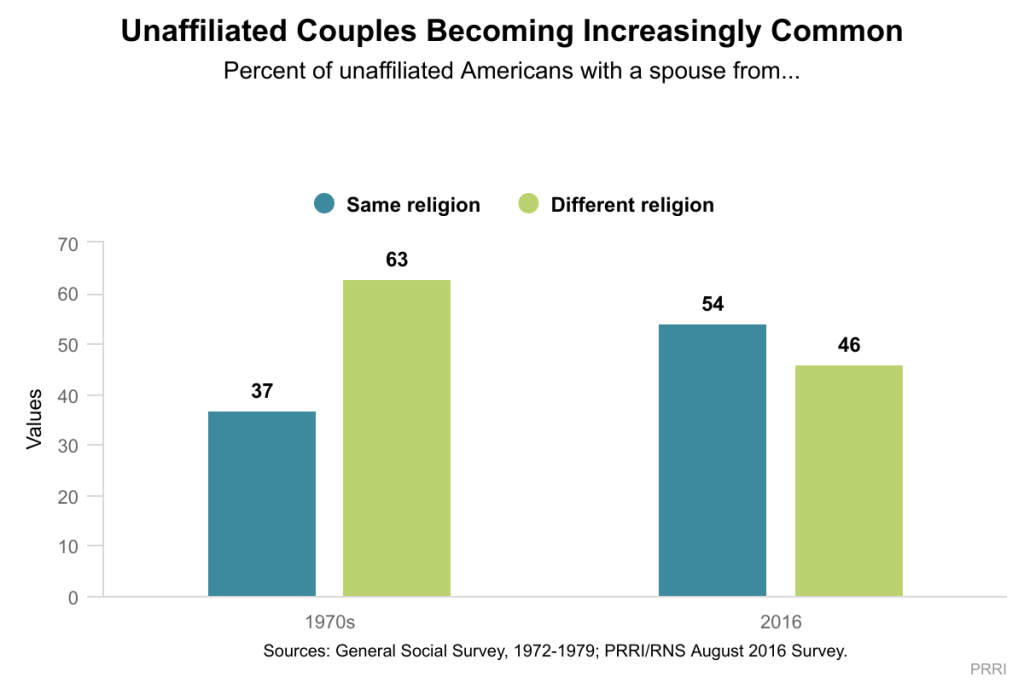When it comes to finding love, most nonreligious Americans don’t believe it’s a major issue if their partner doesn’t share their religious beliefs. Only 17 percent of unaffiliated Americans say that having different religious beliefs can be a major problem for a marriage or romantic relationship. In contrast, a majority (56 percent) of white evangelical Protestants say the same.
 And yet, the dating behavior of religiously unaffiliated Americans tells a different story. The majority (54 percent) of all unaffiliated Americans who are married report that their spouse shares their religious identity. This is a significant change from the past. In the 1970s, only 37 percent of unaffiliated Americans had an unaffiliated spouse; most were married to someone who was religious.
And yet, the dating behavior of religiously unaffiliated Americans tells a different story. The majority (54 percent) of all unaffiliated Americans who are married report that their spouse shares their religious identity. This is a significant change from the past. In the 1970s, only 37 percent of unaffiliated Americans had an unaffiliated spouse; most were married to someone who was religious.
The rise of secular couples may be as much about opportunity as preference. The proliferation of online dating and social networking websites has made it easier than ever for nonreligious Americans to find each other. Sites like Atheist Passions and Free Thinker Match cater exclusively to nonreligious singles. On mainstream dating sites, being nonreligious can be an asset—atheist users tend to have more luck than religious users. In an analysis of 500,000 members the online dating site, OKCupid, found that nonreligious identifiers had the highest match percentage, while profiles that mentioned God had the lowest.
In part, this finding likely has a lot do with who is using online dating sites—people who are single. Compared to people who are married, singles in the U.S. today are more likely to be religiously unaffiliated. More than one-third (36 percent) of single Americans are unaffiliated. In contrast, only 19 percent of married Americans are unaffiliated.
If the unaffiliated population continues to grow it is likely that the number of secular romances should rise as well. That’s good news if you have a rustic barn to rent out.